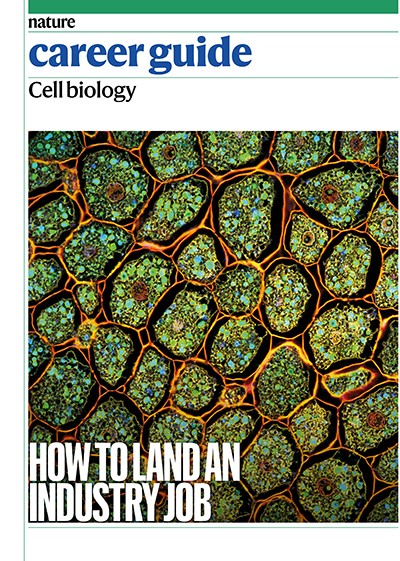
Recruiter Melisa Medrano advises that CVs should be descriptive, living documents that evolve as your career progresses.Credit: Eric Merriam
Before becoming a recruiter for the biopharmaceutical industry, I earned a PhD at Tufts University in Massachusetts studying Borrelia burgdorferi, the bacterium that causes Lyme disease. Now, when I evaluate candidates for biopharma roles, I’m looking for people who are a good fit for the role, who are collaborative and who have strong technical skills.
Put your CV first
In biotech and pharma, CVs are usually evaluated before cover letters or other application materials. This might sound cheesy, but a CV is like poetry rather than prose — poetry is the art of using as few words as possible to express your point, and a CV should be exactly that. Some CVs, especially in the United States, tend to be more of a list of positions, grants, publications and poster presentations. Be thoughtful about how you structure the first half of the first page, which might include a summary of your background and objectives. This can help to establish your intent, particularly if you are looking to move from academia to industry. You can also use this space to state that you’re open to relocation or will require eventual visa sponsorship, for instance.
Nature Career Guide: Cell biology
Give context
I sometimes recommend that people remove a generic ‘skill set’ list from their CVs, which often give key words without providing the scientific context in which these skills were used. Weave specific techniques and assays that you know how to do into the descriptions of your previous research and work experiences. Almost every graduate student will have teaching-assistant responsibilities, so don’t take up too much space talking about that experience. If you did an internship in industry, include it.
Keep the science clear
Ask other people to read your CV and make sure they can understand it, even if they don’t have a background in science. It has to speak to multiple audiences, because it will be reviewed by someone in human resources or talent acquisition who might not have a technical background, as well as a hiring manager, who wants to see your scientific knowledge.
There are no minimum or maximum word counts or pages — as you grow in your career, so should your CV. Your job will probably evolve over time, and it can be easy to forget some of your accomplishments if you don’t write them down. Your CV should be a descriptive, living document.
Keep track
It can be helpful to keep a spreadsheet of the jobs that you applied for, especially if you tailored your CV and cover letter to different positions. This spreadsheet could include a list of the companies you applied to and the role you went for. If you were contacted by a recruiter, record their name and e-mail or phone number. If you saved different versions of your CV, document which version you submitted.

 Top tips for cell biologists eyeing a move to industry careers
Top tips for cell biologists eyeing a move to industry careers








